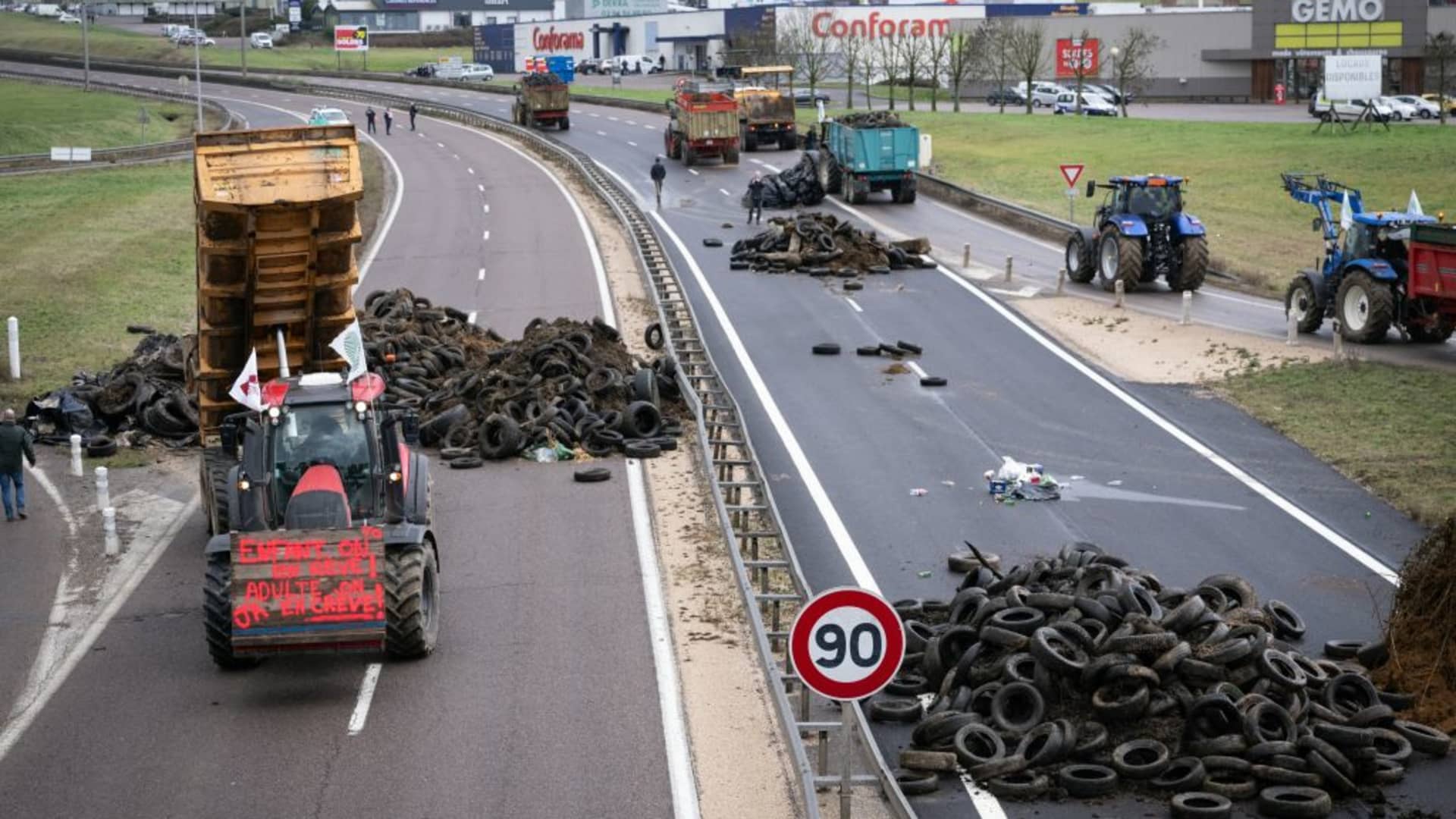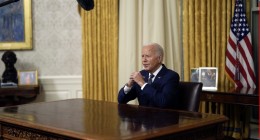A farmer pulls waste to block the RN 19 near in Vesoul, eastern France, on January 25, 2024.
Sebastien Bozon | Afp | Getty Images
The European Union prides itself on being a champion for the environment.
But that reputation is now being firmly tested, after it toned down its climate policies following angry farmer protests that are taking place across the continent.
The European Commission, the executive arm of the EU, now intends to scrap a plan to halve pesticide use. In addition, the institution also decided last week to omit the agricultural sector out of a strict timeline for cutting greenhouse gas emissions by 90% before 2040.
Speaking to CNBC Thursday, the EU’s Agriculture Commissioner Janusz Wojciechowski said he was “happy” about the U-turns because they were not “fully fair.”
“We need to reduce the use of pesticides, but not to force the farmers [to do it],” he said, adding that the solution is to provide more financial subsidies to the sector to incentivize them to pursue greener practices.
The EU wants to become carbon neutral by 2050. It also wants to cut greenhouse gas emissions by at least 55% by 2030, compared to 1990 levels.
When asked if these latest changes to policy could compromise those ambitious targets, Wojciechowski said: “This is the general target for the whole economy, but in agriculture, we should take into account the specifics of agriculture.”

Europe’s re-assessment of its climate policies comes as the bloc approaches EU parliamentary elections in June, which are expected to bring in more far-right and fringe lawmakers into the Parliament.
“The farmers’ question is set to dominate the electoral competition ahead of the European Parliament 2024 [elections], by becoming one of the few pan-European issues, over which various parties will be competing,” Alberto Alemanno, a professor at H.E.C. Paris Business School, told CNBC via email.
“The next EU political cycle (2024-29) will undoubtedly be less green to the point of putting into question the implementation of the green new deal [Europe’s flagship program towards carbon neutrality] and slowing down its next chapters such as the extension of sustainability requirements to agriculture,” Alemanno also said, adding the recent protests “are just a prelude of further clashes to come.”
A farmer pulls waste to block the RN 19 near in Vesoul, eastern France, on January 25, 2024.
Sebastien Bozon | Afp | Getty Images
There’s been a culmination of factors that have pushed farmers to protest in recent weeks, causing some damage in capitals such as Paris. These include rising costs, higher debt, competition from cheaper markets and falling sale prices.
For example, the average price of agricultural products that farmers receive declined by 9% in the third quarter of 2023, compared to a year ago.
Luc Vernet, secretary general of the think tank Farm Europe, told CNBC that farmers needed more investment support.
“Farmers do not have access anymore to cheap money and bankers are much more reluctant to [lend] money to the farming sector. So, we really need to reflect within the European Union on how to deliver the transition, because clearly there is a need to move on,” he said.
Farmers are at the heart of one of the most important and historical pieces of legislation in the EU: The Common Agricultural Policy, which provides 55 billion euros ($59.3 billion) every year in subsidies to the sector.
The farmer protest even stretched across the English Channel to the U.K. at the back end of last week. British farmers, with the country no longer in the EU, made an impromptu tractor demo in the port town of Dover on Friday as they protested against foreign imports of food.







